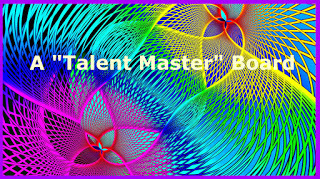The “Digitizing Boardroom” Book Introduction Chapter 7 A “Talent Master” Board
 People are always the most invaluable asset in businesses. Digital workforce in organizations today are multigenerational, multicultural and multi-tasking. The digital Board will help set the principles to innovate talent management and embrace digital fitness. Those guiding principles should be at the forefront of the mind of anyone doing the hiring because finding the right person who fits in the company will lead to greater success for both individuals and the company.
People are always the most invaluable asset in businesses. Digital workforce in organizations today are multigenerational, multicultural and multi-tasking. The digital Board will help set the principles to innovate talent management and embrace digital fitness. Those guiding principles should be at the forefront of the mind of anyone doing the hiring because finding the right person who fits in the company will lead to greater success for both individuals and the company.
Good directorship is about creating the greatest value to motivate talent development: Board motivation and inspiration can come from any type of personal interaction. It’s always good to make a board meeting a positive experience. How the C-suite feels before and after a board meeting, their energy levels, self-confidence, the frame of mind, and the understanding of the rule, etc, these factors are crucial in organizational performance. It is the combining a range of value creating, motivating, and monitoring strategies rather than following best practice heuristics that by their nature of being most practiced, but provide no competitive advantage.
Boards oversee business strategies, a solid talent strategy needs to be well-defined based on the business’s long-term perspective well mixing with short term needs: The main goal of modern talent management is to put the right people in the right position with the right capability to solve the right problems. There are many factors to consider when hiring and managing talent, but first, you need to define talent unless “hiring talent” means “hiring employee.” BoDs can contribute by setting good policies for digital talent management via clarifying the important questions such as - how do you define talent? How do you measure talent? How do you know a candidate’s talent? How do you know what talent is required for each job? And how do you match a candidate’s talent to the talent demanded by the job? Etc. Many say talent shortage is artificial, BoDs, top executives, and talent managers have to open their own mind, to discover talent via the emergent digital channel and explore the alternative digital pipelines, in order to hire and engage talent in the digital way.
 The Board’s role in managing talent management risks: Digital organizations are always on, interdependent and hyperconnected. Organizational risks include talent-related risks and are frequently identified by organizations as some of the most critical issues they face. The board plays a crucial role in identifying talent gaps, oversee the talent strategy as an integral component of the business strategy, and be aware of talent management related risks such as capability risks, capacity risks, cost risks, reputation and regulatory risks,, etc. to look forward, today’s BoD and talent managers must isolate and address a much broader array of talent risks, taking into account a critical need to craft a solid talent strategy that supports business strategy and capital investment, identify talent bench strength and weakness, forecast talent management capacity, and measure talent to well reflect its business value.
The Board’s role in managing talent management risks: Digital organizations are always on, interdependent and hyperconnected. Organizational risks include talent-related risks and are frequently identified by organizations as some of the most critical issues they face. The board plays a crucial role in identifying talent gaps, oversee the talent strategy as an integral component of the business strategy, and be aware of talent management related risks such as capability risks, capacity risks, cost risks, reputation and regulatory risks,, etc. to look forward, today’s BoD and talent managers must isolate and address a much broader array of talent risks, taking into account a critical need to craft a solid talent strategy that supports business strategy and capital investment, identify talent bench strength and weakness, forecast talent management capacity, and measure talent to well reflect its business value.Talent development and talent management innovation are important. Thus, it needs to be a hot topic of the Board. The core of such brainstorming is to be more philosophical than scientific at the board level. Top leaders such as BoDs need to become change agents, organizational talent management, performance management, knowledge management and culture management need to be well integrated into a holistic people management approach, in order to align organizational vision with staff engagement. And then, innovation becomes a daily routine to run a high-performing digital organization with people centricity. Follow us at: @Pearl_Zhu
Published on August 30, 2016 23:11
No comments have been added yet.



